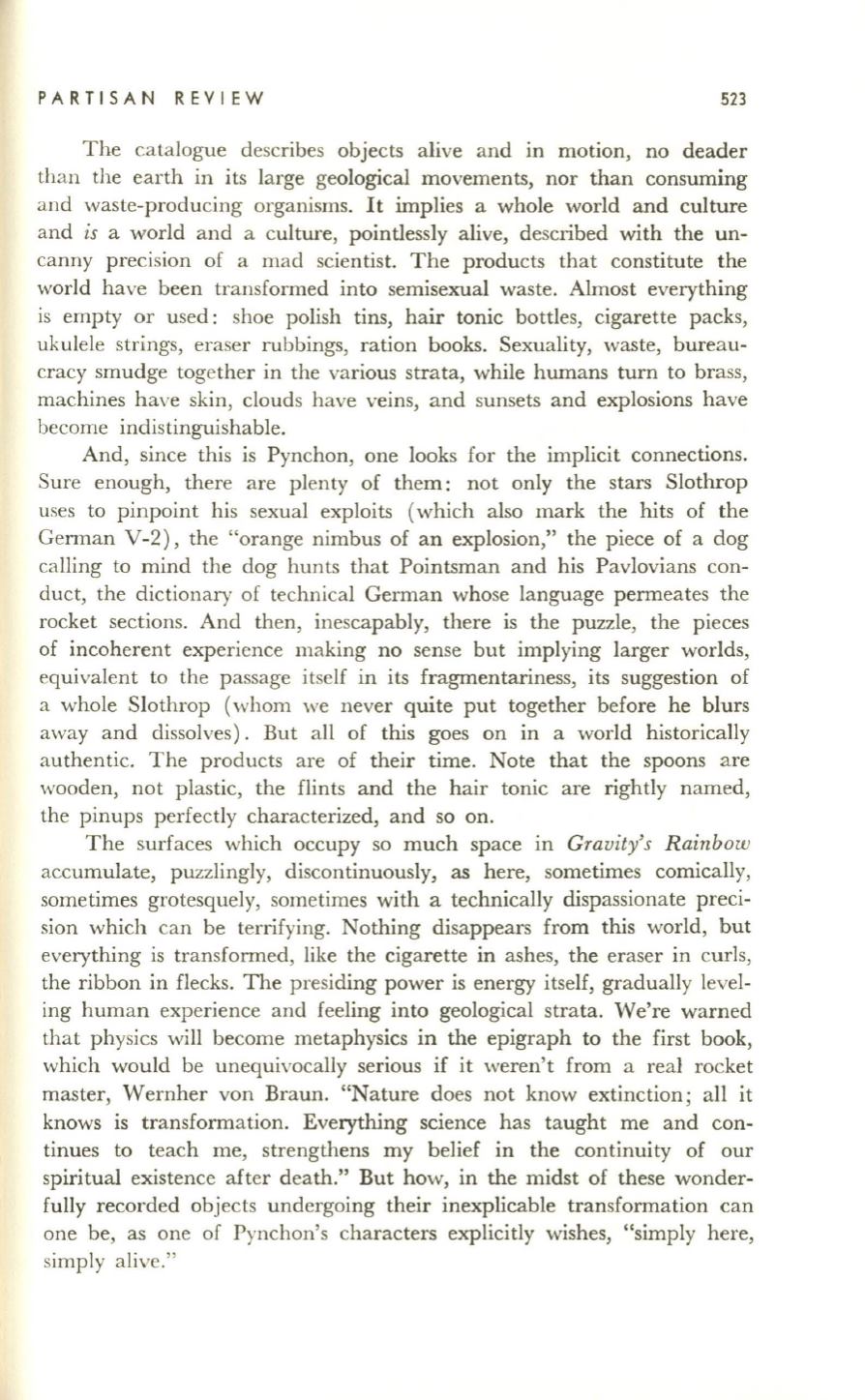
PARTISAN REVIEW
523
The catalogue describes objects alive and in motion, no deader
than the earth in its large geological movements, nor than consuming
and waste-producing organisms. It implies a whole world and culture
and
is
a world and a culture, pointlessly alive, described with the un–
canny precision of a mad scientist. The products that constitute the
world have been transformed into semisexual waste. Almost everything
is empty or used: shoe polish tins, hair tonic bottles, cigarette packs,
ukulele
strings, eraser rubbings, ration books. Sexuality, waste, bureau–
cracy smudge together in the various strata, while humans turn to brass,
machines have skin, clouds have veins, and sunsets and explosions have
become indistinguishable.
And, since this is Pynchon, one looks for the implicit connections.
Sure enough, there are plenty of them: not only the stars Slothrop
uses to pinpoint his sexual exploits (which also mark the hits of the
German V-2), the "orange nimbus of an explosion," the piece of a dog
caIling to mind the dog hunts that Pointsman and his Pavlovians con–
duct, the dictionary of technical German whose language permeates the
rocket sections. And then, inescapably, there is the puzzle, the pieces
of incoherent experience making no sense but implying larger worlds,
equivalent to the passage itself in its fragmentariness, its suggestion of
a whole Slothrop (whom we never quite put together before he blurs
away and dissolves). But all of this goes on in a world historically
authentic. The products are of their time. Note that the spoons are
wooden, not plastic, the flints and the hair tonic are rightly named,
the pinups perfectly characterized, and so on.
The surfaces which occupy so much space in
Gravity's Rainbow
accumulate, puzzlingly, discontinuously, as here, sometimes comically,
sometimes grotesquely, sometimes with a technically dispassionate preci–
sion which can be terrifying. Nothing disappears from this world, but
everything is transformed, like the cigarette in ashes, the eraser in curls,
the ribbon in flecks. The presiding power is energy itself, gradually level–
ing human experience and feeling into geological strata. We're warned
that physics will become metaphysics in the epigraph to the first book,
which would be unequivocally serious if it weren't from a real rocket
master, Wernher von Braun. "Nature does not know extinction; all it
knows is transformation. Everything science has taught me and con–
tinues to teach me, strengthens my belief in the continuity of our
spiritual existence after death." But how, in the midst of these wonder–
fully recorded objects undergoing their inexplicable transformation can
one be, as one of Pynchon's characters explicitly wishes, "simply here,
simply alive."


